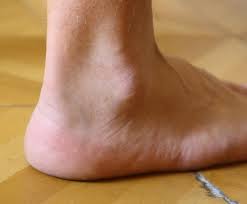记忆方法
将“ankle”联想到“ank”的谐音“安可”,想象脚踝(ankle)是舞台上的“安可”时刻,像演员一样在舞台上表现得完美无缺,这样就能在脑海中留下“ankle”是脚踝的清晰印象。
以上内容由AI生成, 仅供参考和借鉴
中文词源
ankle 踝关节
同angle, 角,弯。
英语词源
- ankle
-
ankle: [14] Ankle comes from a probable Old Norse word *ankula. It has several relatives in other Germanic languages (German and Dutch enkel, for instance, and Swedish and Danish ankel) and can be traced back to an Indo- European base *angg- ‘bent’ (ultimate source also of anchor and angle). Before the Old Norse form spread through the language, English had its own native version of the word: anclēow. This survived until the 15th century in mainstream English, and for much longer in local dialects.
=> anchor, angle - ankle (n.)
- Old English ancleow "ankle," from PIE root *ang-/*ank- "to bend" (see angle (n.)). The modern form seems to have been influenced by Old Norse ökkla or Old Frisian ankel, which are immediately from the Proto-Germanic form of the root (cognates: Middle High German anke "joint," German Enke "ankle"); the second element in the Old English, Old Norse and Old Frisian forms perhaps suggests claw (compare Dutch anklaauw), or it may be from influence of cneow "knee," or it may be diminutive suffix -el. Middle English writers distinguished inner ankle projection (hel of the ancle) from the outer (utter or utward).
权威例句
- 1. He had wrenched his ankle badly from the force of the fall.
- 他因摔倒而严重扭伤了脚踝。
- 2. His teeth clicked as he snapped at my ankle.
- 它猛地朝我的脚脖子咬下去,牙齿还咔咔直响。
- 3. Her ankle caught on a root, and she almost lost her balance.
- 她的脚踝被树根绊了一下,差点摔倒。
- 4. Gavin Hastings was helped from the field with ankle injuries.
- 加文·黑斯廷斯脚踝受伤,被扶下了场。
- 5. Presently George's ankle began to throb with pain.
- 不一会儿,乔治的脚踝就开始一阵阵地疼。
